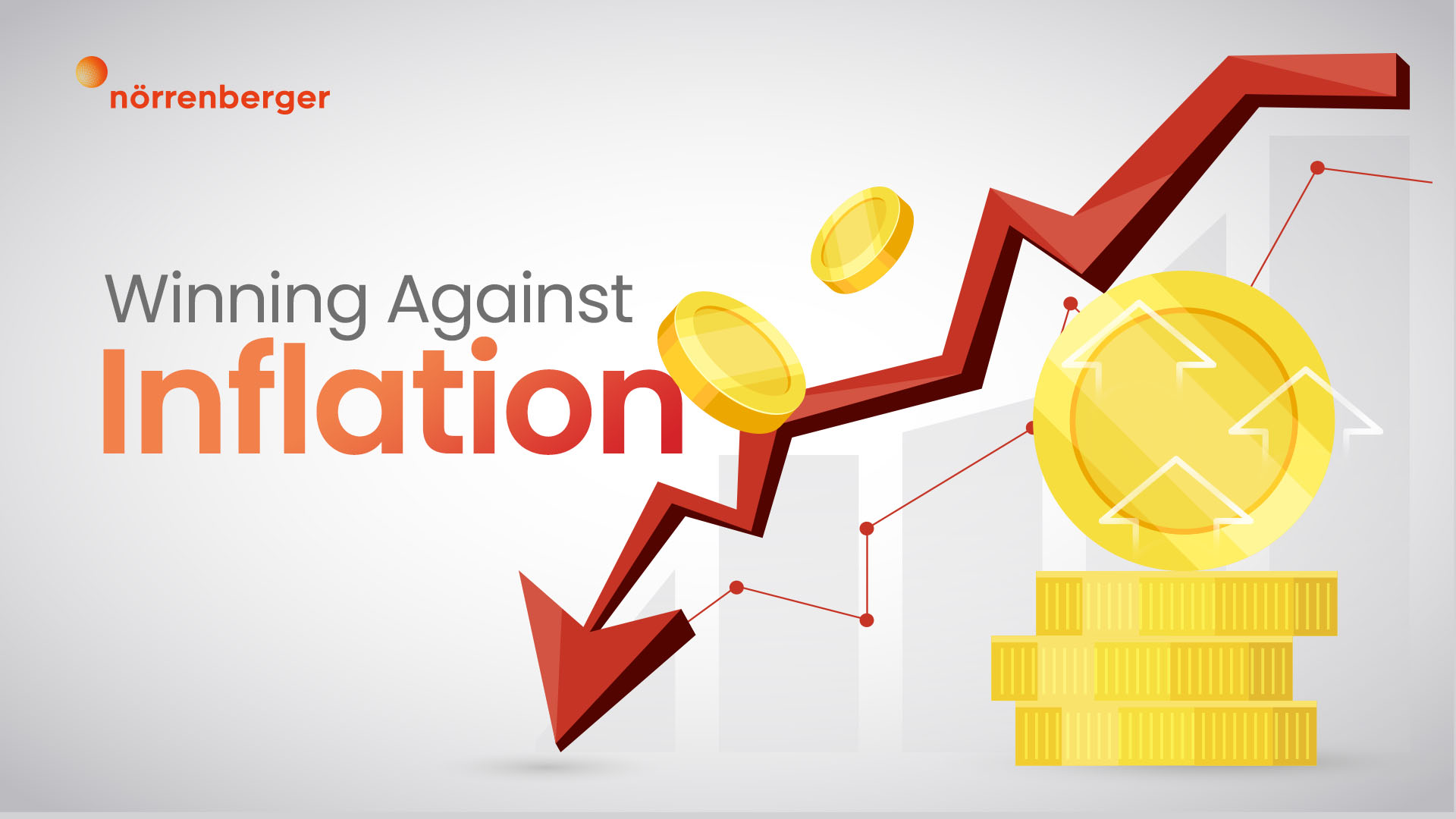Inflation is a term that often creeps into our financial conversations, yet many people do not fully grasp its implications or how it can significantly affect their finances. It’s a topic that demands our attention because understanding inflation is key to protecting our hard-earned money and securing our financial future. What is inflation? How does it affect me? How does it affect my money? How can I prevent it? If you have ever asked yourself these questions, keep reading. This blog post discusses all these questions and of course, how you can win in the constant battle against inflation.
What is Inflation?
Inflation, in simple terms, is the sustained increase in the general price level of goods and services in an economy over time. When inflation occurs, each unit of currency you hold buys you fewer goods or services than it did before. In essence, your money loses value. It directly impacts your purchasing power and, consequently, your standard of living.
How does it affect you?
Think about it this way: If the price of bread is N700 today and the inflation rate is at 10%, the price of bread will be N770 next year. While a 70-naira increase may not seem like much, imagine the cumulative effect on all your expenses over time. If your income remains stagnant, you’ll find it harder to afford the same things you could before.
Inflation also impacts your savings. Money that’s sitting idle, for instance, in your bank account, loses value over time due to inflation. So, if you have ₦1,000,000 in a savings account earning little to no interest, and the inflation rate is 2%, your money effectively loses ₦20,000 in purchasing power over the year.
Consider the rising inflation rates in Nigeria over the last few years. Nigeria currently records a 25.80% inflation rate, the highest since 2009. The rising cost of living means that families need to allocate a larger portion of their income to cover basic necessities like food, housing, and transportation. This can put pressure on household budgets and make it challenging for individuals to save or invest for their future.
How to react to inflation
- Remain Calm: It’s essential to stay calm during times of inflation. Making decisions from a place of peace can lead to better financial choices. In the bid to safeguard your money, do not risk your capital. Capital preservation is also important.
- Budget and Save: Keep a close eye on your expenses and budget accordingly. Focus on saving and investing rather than letting your money sit in low-yield savings accounts. Also, examine your expenses closely and identify areas where you can cut unnecessary spending to better manage your finances.
- Consider Dollar-Denominated Investments: Explore investments in assets denominated in foreign currencies, such as the US Dollar. These can provide a hedge against the devaluation of the Naira and potentially offer better returns. At Norrenberger, we have dollar-denominated products to help you do just that like the Norrenberger Dollar Fund.
- Stay Informed: Monitor economic news and inflation reports. Being aware of inflation trends can help you make informed financial decisions.
Inflation is a reality that affects us all, and its consequences can be particularly pronounced in countries like Nigeria, where inflationary pressures have driven up prices. However, with careful planning and the right financial strategies, you can protect your money and even come out ahead during times of inflation. Don’t let inflation erode your savings; take control of your financial future by investing wisely and staying informed. In the battle against inflation, knowledge truly is power.




